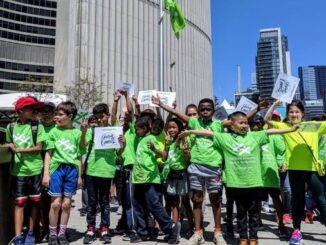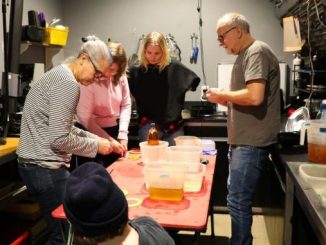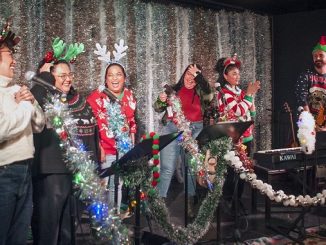The Youth Alliance of Intersectional Justice (YAIJ) is a Black youth-led collective that amplifies the voices of marginalized youth who have labels related to race, dis/ability, sexuality, gender expression, economic status, and other social labels. The organization is focused on empowering racialized youth with intellectual and/or developmental disabilities to challenge special needs labels by taking up space, teaching and learning on their own terms, and directing their own life stories. They develop community-based projects and research that focus on education, technology, housing, employment, and entrepreneurship. We spoke with co-founders Carolyn Tinglin and Jantzson Tinglin to learn more about what they do.
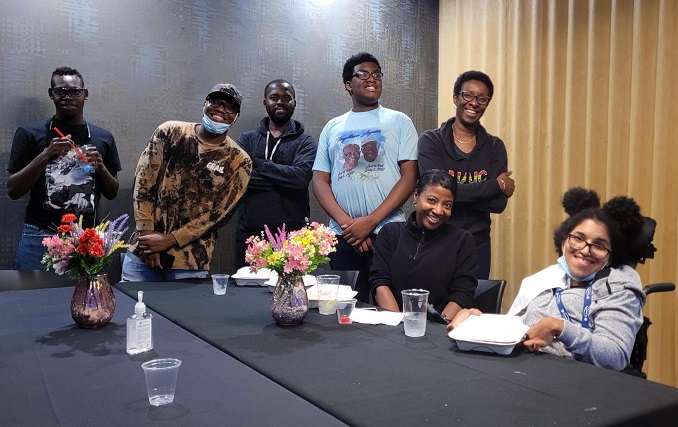
Describe your charity/non-profit/volunteer work in a few sentences.
We’re a Black youth-led collective of Black and racialized neurodiverse youth. We serve neurodiverse across Canada seeking culturally grounded, meaningful and relevant engagement in the areas of education, employment, technology, and housing.
What problem does it aim to solve?
Black and racialized neurodiverse youth have been systemically hidden and excluded from mainstream society. This has made it difficult for young people to navigate education, employment, housing, and technology spaces without experiencing multiple and multi-layered systemic barriers.
We’re centring the voices, ideas, goals, and talents of Black and racialized young people, to create equitable space, access, and opportunities afforded to their non-racialized and non-neurodiverse peers.
For example, the underemployment of youth with disabilities is tracked by Statistics Canada, but employment statistics for Black racialized AND disabled young Canadians don’t exist. Black youth, and categorically disabled youth have the highest rates of unemployment in Canada.
If we don’t have data about the employment of multi-marginalized Canadian youth (those who are Black, racialized, and disabled) we can’t begin to address the benefits and barriers to employment these youth face.
When did you start/join it?
June 2021, with operations across the GTA and Vancouver, BC.
What made you want to get involved?
We looked for community-based organizations and youth-based programs that catered to youth with varying abilities from the Black community and Indigenous nations, and a bully-free space where youth, including Jantzson, could be themselves.
At YAIJ, racialized youth are defying intellectual and/or developmental dis/ability labels by participating in community-based projects focused on education, technology, and entrepreneurship.
What was the situation like when you started?
We looked for neuro-focused agencies that offered Afrocentric or culturally grounded youth programs and found none. Jantzson was often the only Black young person in those spaces.
How has it changed since?
It hasn’t. YAIJ is still the only agency of its kind, as a federally incorporated nonprofit led by, and created for Black and racialized neurodiverse youth.
In the last year, we’ve seen other organizations follow our lead, creating more programming for Black neurodiverse youth, or creating youth committees within their company, but it’s still unclear how they’re helping or amplifying the voices of Black and racialized youth in meaningful ways. Our hope is these aren’t tokenistic efforts.
We’re still hopeful that more agencies will make authentic and youth-driven efforts to support Black and racialized neurodiverse youth in meaningful ways.
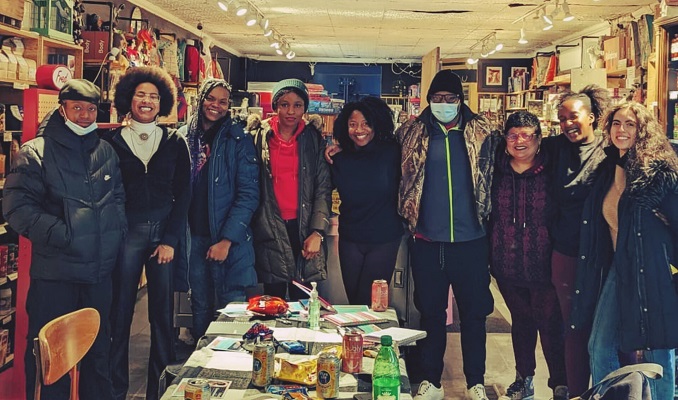
What more needs to be done?
More funding is needed for agencies like ours that exist so that youth have equitable opportunities to be part of their communities, contribute to society, and live a “good life”.
We need help to complete research by and for the youth community to better understand how to create systems that can account for the needs and strengths of Black and racialized neurodiverse youth.
How can our readers help?
Readers can support our collective by donating their time, money, or resources. We don’t charge youth for the programming we offer, and we’d like to keep it that way!
YAIJ offers the following programs: Employment Exploration, Entrepreneurship Support, Self-advocacy Training, Art-Based Self-Care and Networking events (to create and sustain social networks).
For those interested in volunteering, please email: whatshappening@yaij.org
Do you have any events coming up?
On May 11th we have Part 2 in our series of “Count Me In! YAIJ & Politics” of introductions and entry points to understanding Canadian politics on a local level. It is very rare that Black and racialized neurodiverse youth (especially youth with intellectual disabilities) are involved in the political world around them. This event is for Black and racialized youth wanting to learn how the political system impacts their lives and those of the people they love. We’ll also be taking a trip to Queens Park to meet MPP Sarah Jama.
On May 26th we’re gathering with autistic post-secondary students who will share their knowledge and experiences of college and university life for “School Transitions: Tips for Autistic Youth Navigating College & University. Topics include: how to apply to school, which departments are the most helpful, social expectations, self-advocacy, and more. This will be available online over Zoom! Students, parents, carers, teachers, and accessibility specialists are welcome. Please join us if interested.
As well, our ongoing YAIJ programs in May are Period Empowerment (Period Health) and Youth Employment Exploration Program in the Trades (YEFPT).
Please visit our website for additional event details and for all volunteer opportunities.
Where can we follow you?
Website | Instagram | Facebook | LinkedIn
PAY IT FORWARD: What is an awesome local charity that you love?
Young people with disabilities are also at high risk for homelessness and we really appreciate all that Rest Centres does for young people who are unhoused, and facing so many barriers. They do so much for young people at risk and those who are precariously housed in the Peel Region.


